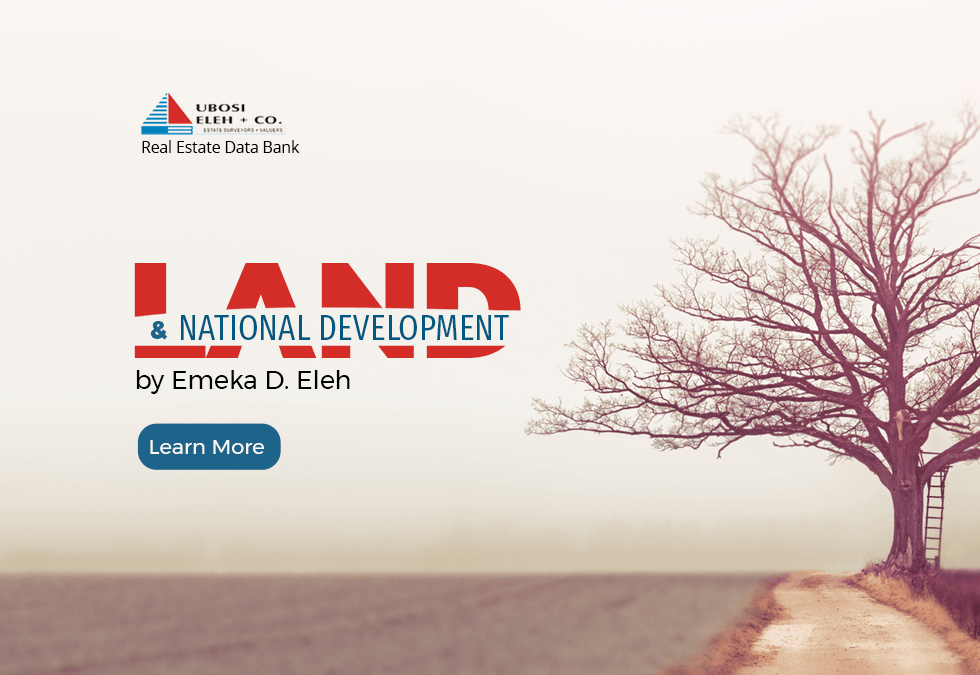Home ownership in Nigeria is drastically low, and efforts of some credible real estate developers to increase the housing stock are regularly stonewalled by lack of funding by banks and by curious policies of the government.
Home ownership in Nigeria, with a population put at 200 million people, is at a mere 25 per cent, compared to Kenya’s, which is 73%, South Africa, 56% and Indonesia, 84%.
A recent report by Ubosi Eleh and Co., a firm of Estate Surveyors and Valuers, says an analysis of data in the third quarter of last year shows that the nation’s housing industry grew only once since 2016.
The report says the decline is not unconnected with the paucity of funds made available to the sector for home building, stating that “data from the Central Bank of Nigeria suggested that loans granted to the real estate sector recorded seven consecutive declines stretching back to the third quarter of 2017.
“The real estate performance remained sub-optimal during this period and recorded positive gross domestic product (GDP) growth just once in the past 15 quarters.”
Bank loans to the real estate sector fell in the second quarter of 2019 and total credit to the sector “declined 4.20 per cent quarter on quarter and 22.90 per cent year on year to N1.80 trillion in the second quarter of 2019.”
READ ALSO: Nigeria’s Land Policy is Communist Approach in Capitalist Economy, Says Ojikutu
The report quoted the National Bureau of Statistics as stating that “credit dropped from N710 billion recorded in the third quarter of 2018 to N588 billion out of N16.25 trillion credit facilities given in the same period of 2019.
“These recessionary trends impacted negatively on firms in the housing industry as well, as shown by UACN Property Development Company which reported a decline of 42 per cent in revenue and made a pre-tax loss of N9.20 billion in full year 2018.”
Regardless of the downturn, some developers continued to increase their housing stock with reputable companies standing their ground. Within the period, new homes emerged across the country, specifically in Lagos, Port Harcourt and Abuja, where the bulk of the homes have been built.
For instance, Lekki Gardens has contributed over 8,000 units since 2012 to help reduce the housing deficit in Nigeria. Lekki Gardens is a leading real estate company pioneering luxury and affordable housing across Lagos, Abuja and Port Harcourt. Nigeria needs a lot more industry players to take a leave from Lekki Gardens’ model to help support the government’s goals in this area.
The company has serviced consumers across different sections of the housing markets and has different classes of properties, including terrace duplexes, fully and semi-detached, maisonettes and flats of different sizes (1–5 bedrooms).
Like the few real estate companies still weathering the storm in the sector, Lekki Gardens employ many local personnel of global repute to drive their projects. The company’s intervention has led to the employment of over 10,000 people, directly and indirectly, according to officials.
However, there is a major concern about uptake, considering the low income capacity of most prospective home buyers. Mortgage interest rates, they said is too high, adding that this situation needed government intervention.
According to professionals in the sector, “These housing loans are ways for people to become homeowners. Yet, it has not taken off in Nigeria. Left to the private sector, Nigerian mortgages are not a viable option, as interest rates are in the double digits. If you are paying 15% interest on a 35-year mortgage, you would have paid around five times the original value of the property.”
On low cost housing, the officials said, “In reality, current low cost housing projects are delivered at prices that are somewhat out of reach of people earning basic salaries. One way to get around this is for the government to promote low cost technologies for mass housing units’ solutions through Public Private Partnership (PPP) arrangements.”
Policy and Regulation: The quality of land administration in the country significantly needs improvement. The Land Use Act No. 6 of 1978 (LUA) continues to hinder the land markets and acquisition in Nigeria. The major objective of making land easily available has not been fully achieved by the Act. Tenure of security and title system is largely formal, requiring the consent of a governor of a state on all transactions since the LUA has vested all lands in the Governor.
Whilst government is increasing efforts to reduce the housing deficit and effectively focus on problematic areas like the deficiency of housing loan system: the lack of social housing, titling problems and documentation, there is however a dire need for other entities to complement their efforts.
A feasible means of impacting housing cost and reduce the housing gap in Nigeria is to advocate for private sector involvement in the Nigerian real estate sector. A laudable example is Lekki Gardens Estate Limited that has executed projects to reduce the housing deficit in Nigeria while gainfully employing a coalition of Engineers, architects, quality control experts, surveyors, customer service representatives and site workers, amongst others.
Hopefully with the right supports and partnership, Nigeria’s housing gap will be reduced to the barest sooner than later.
Credit: www.thisdaylive.com





